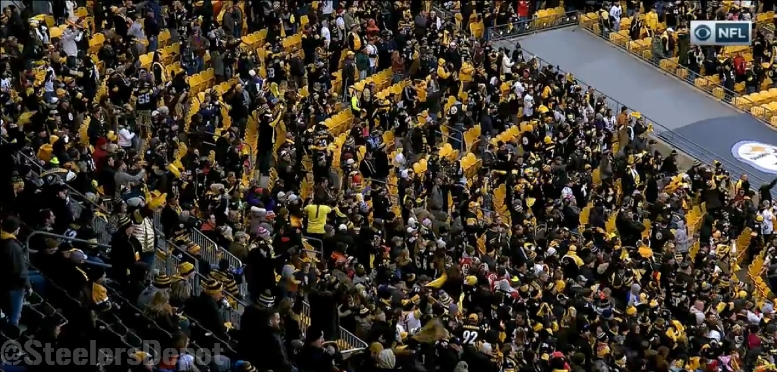The offseason is inevitably a period of projection and speculation, which makes it the ideal time to ponder the hypotheticals that the Pittsburgh Steelers will face over the course of the next year, whether it is addressing free agency, the draft, performance on the field, or some more ephemeral topic.
That is what I will look to address in our Buy or Sell series. In each installment, I will introduce a topic statement and weigh some of the arguments for either buying it (meaning that you agree with it or expect it to be true) or selling it (meaning you disagree with it or expect it to be false).
The range of topics will be intentionally wide, from the general to the specific, from the immediate to that in the far future. And as we all tend to have an opinion on just about everything, I invite you to share your own each morning on the topic statement of the day.
Topic Statement: Homefield advantage will become close to meaningless if games are played in empty stadiums, and thus will affect betting lines.
Explanation: Home teams are typically said to be spotted three points in the spread due to the implied advantages of playing in your own stadium, a big element of which could be the fact that you have a crowd on your side. Due to the pandemic, the league and every other sporting event is giving consideration to the possibility of playing games with no fans, only broadcast over television.
Buy:
While there are other tangible advantages to playing games at home, such as the ease of travel and the comfort of familiar surroundings, having a favorable crowd is by far the biggest advantage of the homefield game, and accounts for at least the vast bulk of the three-point swing given to the host team.
Just take the Steelers’ game against the Los Angeles Chargers last year. While it took place on the west coast, the Steelers essentially had the edge—while starting an undrafted rookie quarterback in his first game, mind you—because the crowd was favorable to the road team. That would seem to speak against the homefield advantage, but that’s an atypical circumstance—generally, the home crowd is obviously very in favor of the home team.
Sell:
If crowdless stadiums do affect the spread, it won’t come immediately, but over time, as it becomes clear whether or not the lack of fans has any type of impact on the game. Bettors are an unsentimental group, their only interest being whether or not their bets pay off.
And as mentioned, there are other tangible benefits for being the home team. Athletes are still human, and human beings feel most comfortable in their familiar surroundings. Sleeping the night before in your own bed, coming to work in the same building, these are as much a part of the ‘homefield advantage’ as the crowd. ‘Renegade’ is a fun tradition, but it doesn’t exactly guarantee the defense is going to make a stop. Didn’t they play it before the Kyle Juzscyck touchdown that required the Immaculate Extension comeback on Christmas Day?








